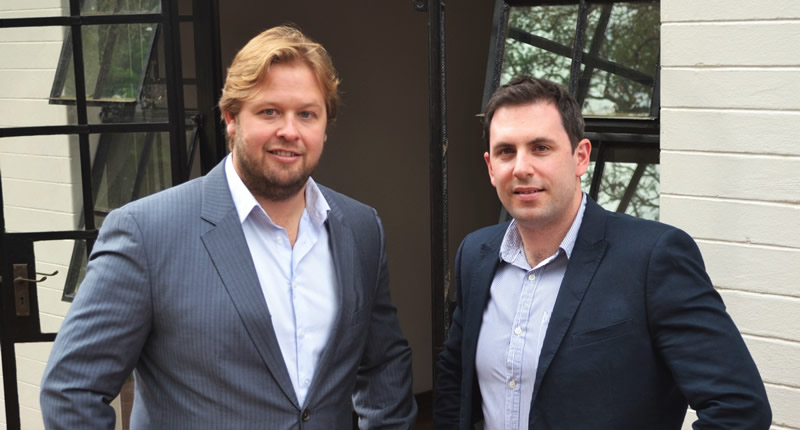South African Real Estate Startups Shock Other African Startups With This New Move
With a population of close to 60 million people, a housing backlog of more than 2.5 million housing units, representing over 12 million people who are currently without adequate housing, smart startups in the South African Real Estate sector who are quick to innovate are cashing out big time. While other entrepreneurs are yet to know about this, a new wave of real estate entrepreneurs in South Africa is transforming the property industry through spell-binding innovation that have changed the way homes are bought, sold and rented in South Africa. Here is how the game has been changed.

Using Crowdfunding To Grow Real Estate
Real estate crowdfunding has grown exponentially since 2012 and is disrupting the real estate market in terms of raising capital. In 2015, over $34.4 billion was raised by individuals on crowdfunding platforms. While real estate crowdfunding statistics are not that common since it is a fairly new concept, trends show that it will continue growing. A property crowdfunding platform usually offers a diversified portfolio of projects. Projects can be short term projects like residential developments for selling or long term projects such as rental properties or tourist accommodations. Projects can also include full development as well as refurbishment projects or asset finance on existing properties, with the right business case. Through crowdfunding, you can contribute towards the development of any property, no matter how small. Once, developed, you are paid returns on your investment unlike donation-based crowdfunding where you not investing for returns.
The size of projects on the platform also varies from $ 200 000 to several million dollars. The success of the project depends entirely on the business case, the attractiveness of the project, and how the interest of the investor can be captured.
The high flexibility and customization of real estate crowdfunding has made it a popular option for real estate in South Africa. Websites like Realestatecrowdfunding.co.za, Reimag.za and RealtyAfrica.com offer a wide range of crowdfunding options. In South Africa, these crowdfunding websites are changing how consumers react to commercial real estate and are also supporting new developers to grow.
Using Virtual Property Agents to Grow Real Estate.
Virtual property agents are eliminating physical real estate agents and middlemen, by providing cost-effective and meaningful information about properties. You can get information about potential client, homeowner’s contact details and other deep personal information about them. Online Virtual Agent will also allow you to search valuable company details such as directorships, property ownership, contact details and addresses where companies are involved because the more you know, the more you sell! You can also get past or current ownership data, dwelling sizes, title deeds numbers, attorney files and more! It is the fastest way of finding property sellers and buyers in South Africa. According to Dan Hughes, CEO of Alpha Property Insight explains, “the average agent spends 80% of their business day doing admin and marketing their product, not negotiating and closing deals. (Virtual) Technology allows us to invert that statistic so that 80% of a professional’s time is spent negotiating and closing deals and only 20% is spent on administrative tasks.”
Most of these online Virtual Agents in South Africa are using 3D modeling and VR tools for virtual viewing of the property. This VR tools are already moving beyond pictures to offer 360-degree video in virtual property “tours”. A major advantage here is that VR can facilitate viewings 24 hours a day, 7 days a week, and will permit buyers to view multiple homes efficiently from the comfort of their own home or wherever they may be. This broadens the prospective viewings available to buyers and means that they might just find a home they didn’t initially ask to see. South African companies such as TheVirtualAgent.za, Gumtree.za and Steeple. are already leveraging this Proptech solution.
Using Cloud Computing and Social Media.
Real estate startups in South Africa are changing the style with the use of many digital channels and social media tools. Buyers and sellers now communicate with each other directly without middlemen, bypassing agents. Potential purchasers and sales teams can share a common view of property information as an interactive map, with administrators having access to detailed user analytics highlighting which units or sectors receive the most interest. The digital tools also provide certain functionality and interface, sometimes defining the property sales process from start to finish, and ensuring that every stage of the deal is measurable and available to all parties at any given time, regardless of geographic location. This is not only cost-effective, but provides real-time availability of property information. This has also reduced barriers to entry for newer and smaller companies to enter the real estate tech of South Africa. Companies like REDi, Propdata, are some of the companies leading this cause.
Also See: Dangote Refinery Plans To Reduce The West African Crude Oil Importation With 650, 000 Barrels Per Day
Making Site Inspection Easier.

Startups in South Africa are also leveraging the power of technology to make site inspection easier. For instance, Imfuna offers a range of mobile apps for digital inspection by construction inspectors, residential and commercial property inspectors, and rental property inspectors. For example, the Imfuna Construction Inspector’s web and app software for iPhone and Android dramatically enhance the construction site inspection process to give builders technology they can depend on. The Imfuna Construction Inspector can be used to observe and record multiple types of data about a property or building site’s condition, then produce a high-quality, branded PDF construction report that can be shared online.
In all, the real estate industry in South Africa is fast changing and smart startups can leverage this opportunity. Consumers are constantly looking out for cost-effective, easier ways of buying and selling property online.
Here is how one reviewer, captures the experience he had on PropertyFox ‘(It is) The new “Uber” of buying and selling Property.I am fortunate to both buy and sell a property through PropertyFox. A remarkably modern way of doing business saving you thousands of rands. I saved almost R135,000 on the sale of my property…’’
South Africans and entrepreneurs elsewhere can leverage these opportunities to explore the fast-revolutionizing real estate business.
Charles Rapulu Udoh

Charles Rapulu Udoh, a Lagos-based Lawyer with special focus on Business Law, Intellectual Property Rights, Entertainment and Technology Law. He is also an award-winning writer. Working for notable organisations so far has exposed him to some of industry best practices in business, finance strategies, law, dispute resolution and data analytics both in Nigeria and across the world.
































